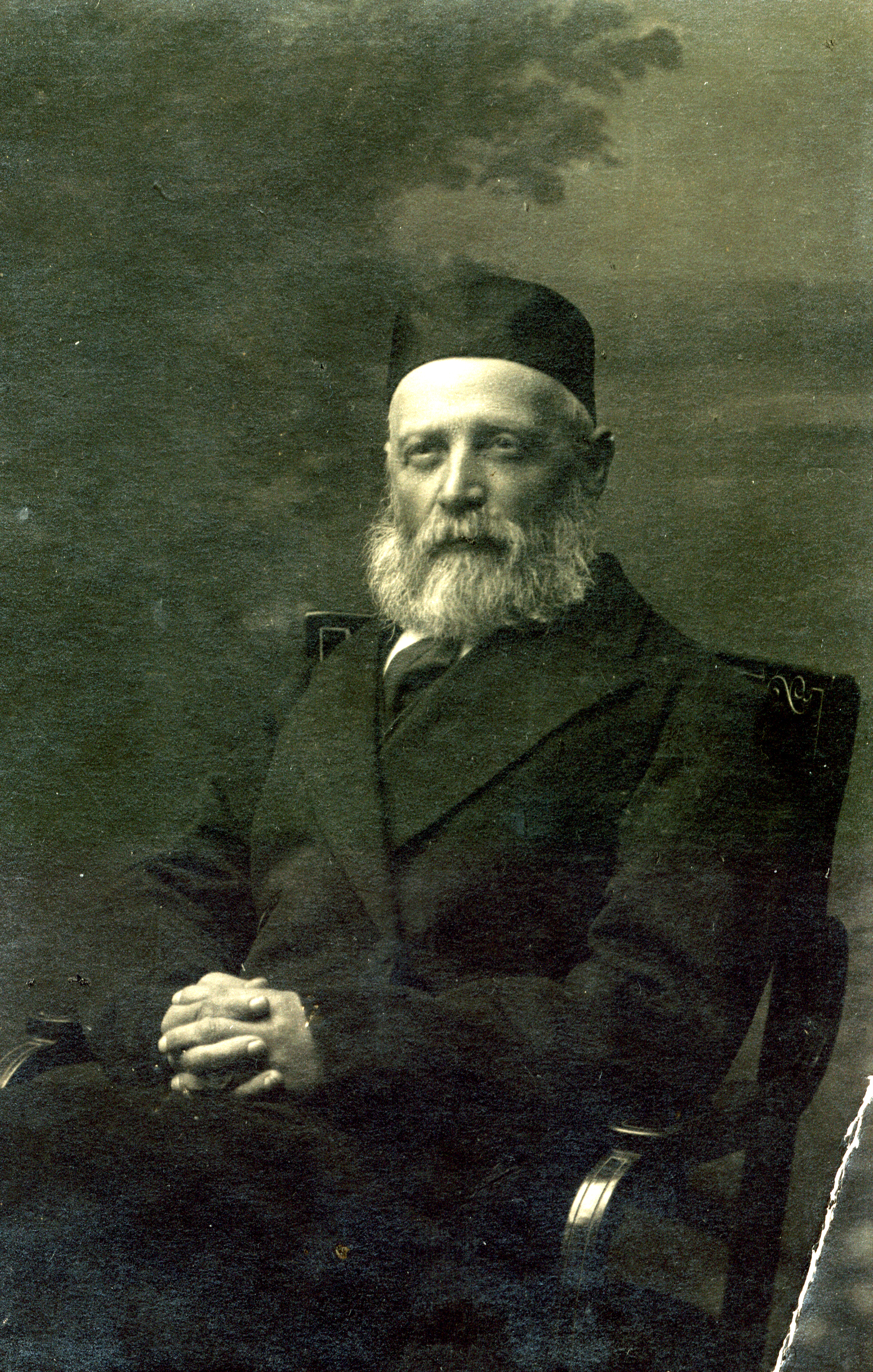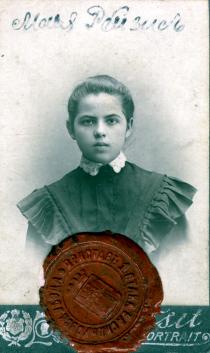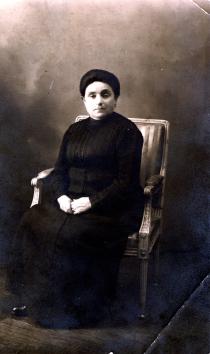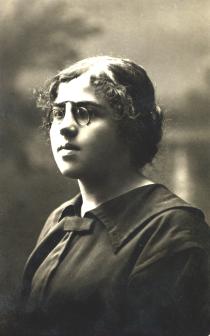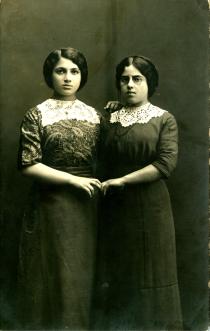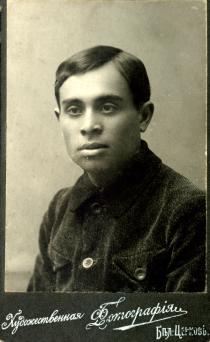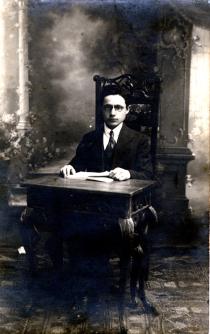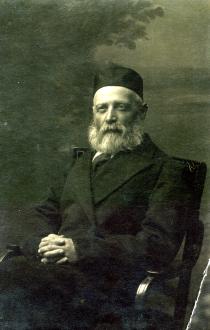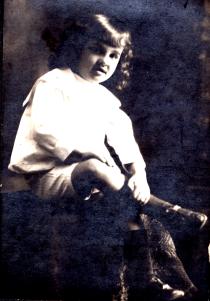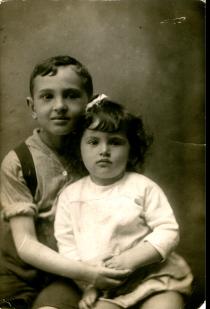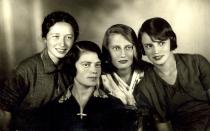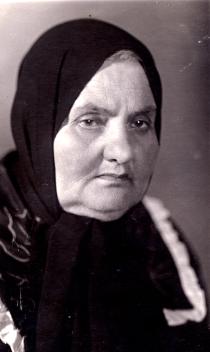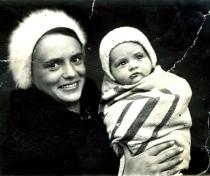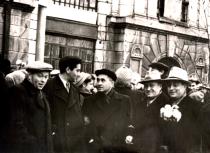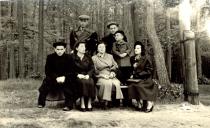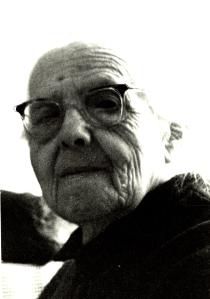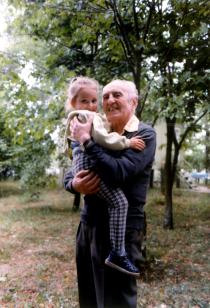My grandfather Meyer Reizis photographed before moving to Kiev, in Belaya Tserkov, 1915.
My maternal grandfather Meyer Reizis was born in a town near Belaya Tserkov in 1864. He finished cheder, but he didn't continue his studies. He was smart and though. He worked at a mill sorting out bags with grain and then he became an assistant accountant in an office. His wife Liya was born in a town near Belaya Tserkov in 1867. After the wedding the newly weds moved to Belaya Tserkov. My grandfather earned little for sorting bags and my grandmother kept cows and sold dairies. They had five children.
When in 1915 the Pale of Settlement was abolished my grandfather Meyer decided to move his family to Kiev. He wanted his son Moisey to get a good education and arrange successful marriages for his daughters. In Kiev grandfather Meyer opened a store selling construction materials. It was located in the center of the town. Grandmother worked there as a shop assistant. The store was closed at the end of NEP in 1929. My grandparents moved to 21 Malo-Vasilkovskaya Street near the Brodski synagogue. They rented an apartment in a private house. There was a terrace and two connecting rooms in this apartment. They were poor, but their relatives came to celebrate Jewish holidays with them anyway. Their children and their families were not religious and didn't observe any Jewish traditions in their homes, but they enjoyed visiting their parents on Jewish holidays. My grandfather and grandmother were religious. They went to the Brodski synagogue. My grandfather wore a black yarmulka and had a short gray-haired bear and moustache. He was a slim short man. He wasn't a pedantic orthodox that follows all rules and rituals, but they always celebrated Sabbath. My grandmother wore a kerchief that was a rule for Jewish women. On Friday my mother's sisters and their families visited their parents and my grandmother lit candles. My grandparents always celebrated Pesach. I remember one celebration. The table was covered with a snow white tablecloth. There was red wine, fancy wine glasses and food on the table. I was surprised to see wine since we never had strong drinks at home. Grandfather sat at the head of the table with a white cloth with black stripes on him. This was a tallit. He had leather boxes on his forehead and on his hand: tefillin.
Grandfather spoke Russian to his grandchildren and Yiddish to grandmother and his children. I also have happy memories of my grandfather. He loved his grandchildren dearly. He often asked me 'Who do I love most of all?' and I replied 'Me' and he said 'That's right!' Maria and other children also made a right guess since he really loved all of us a lot. There were many children paying in the yard where my grandparents lived. There was a volleyball grid stretched and Maria and I liked to go and play volleyball with other children.
I went to synagogue with my [maternal] grandfather carrying his prayer book I remember that when in 1930s Soviet authorities began their struggle against religion they closed Eastern Orthodox, Catholic and Jewish religious institutions. The Brodski synagogue was closed in 1931 our grandfather called Maria and me to help load the Torah scrolls on a truck. I don't know where they hauled all these valuables. Shortly afterward our grandfather fell ill. He had to stay in bed and our mother went to look after him. He died of lung cancer in 1934. He was buried near Moisey's grave at the town cemetery in accordance with the Jewish tradition. When grandfather died my grandmother and my mother's sister Tsypoira sat on the floor for 7 days. My mother told me it was a requirement of the Jewish procedures.
